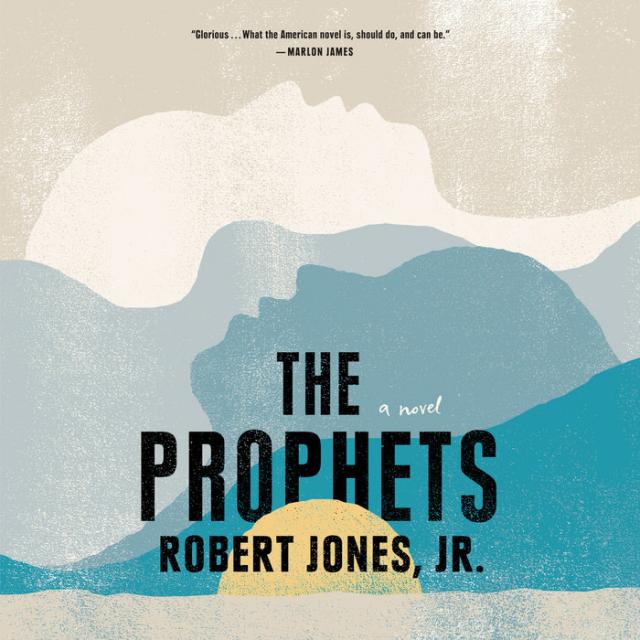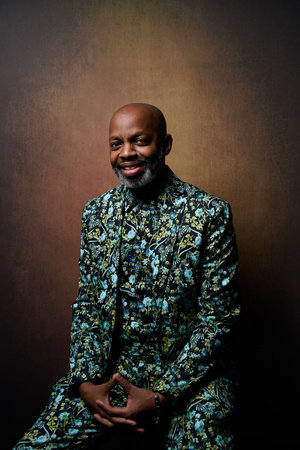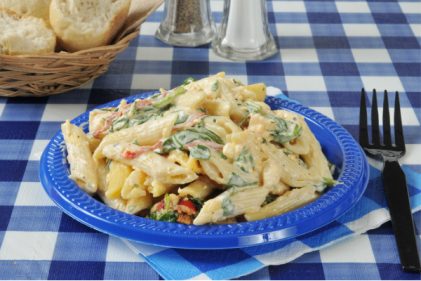‘[To] all my elders and relatives who have passed on over, who are now with the ancestors, who are now themselves, ancestors, guiding and protecting me, whispering to me so that I, too, might share the testimony.’
Even Robert Jones Jr’s dedication in his debut novel ‘The Prophets’ reads like poetry and is a sign of the other-worldly and lyrical story to come.
Otherwise known as the creator and curator of the social-justice, social-media community ‘Son of Baldwin’, Jones has over 275,000 followers and having read his prose, it’s easy to understand why Quercus jumped at the chance to publish him. Jones has his finger on the pulse but also on a nerve and presses down on it, despite the pain in induces. An exquisite tapestry of voices rise from the mists of time under his pen and the past speaks to the present.
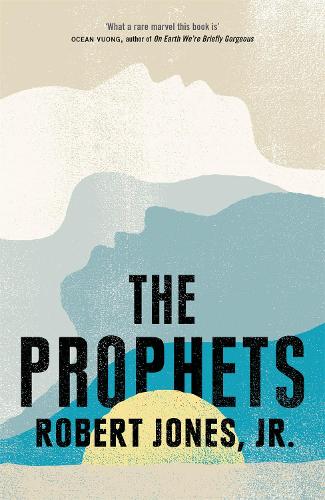
‘The Prophets’ follows the story of Isaiah and Samuel, two slaves on a Mississippi plantation in the 1830s. They are apart, separate from the other slaves on Elizabeth plantation – known to the others as ‘Empty’ – because they are in love. When another slave, Amos, becomes suspicious of the nature of their relationship and the threat of discovery swoops closer and closer like a vulture, life at the plantation begins to stir, in an unfamiliar, drum-beating rhythm.
‘They pushed people into the mud and then called them filthy…They forced people to eat innards from troughs and then called them uncivilised. They kidnapped babies and shattered families and then called them incapable of love.’
This world comes alive around us under Jones’ pen. The sky smiles down like a man who knows too much, the moonlight shines its torch on the secrets that would rather be kept hidden and the cotton fields open their maw to swallow spirits whole in their gaping, toothless mouth. Jones’ writing style is visceral and deep dark, a velvet voice that describes with razor-sharp clarity the degeneracy surrounding it. The rapes in the nearby river, the unchecked and seemingly random cruelties of the plantation owners and the calculated dehumanising of an entire race, reducing them to animals, if not lower. An unflinchingly tough read that refuses to gloss over or fade out from the violence and barbarity of life on ‘Empty’, ‘The Prophets’ is going to be on college curriculums in years to come, a modern classic in the making.
'The easy thing to believe was that toubab were monsters, their crimes exceptional. Harder, however, and even more frightening was the truth: there was no such thing as monsters. Every travesty that had ever been committed had been by plain people and every person had it in them.'
What draws us in most is the quality of the characters, the lives that Jones lifts from the pages. It’s not a linear read, but we’re never confused about who is speaking and when they are speaking from as chapters jump from person to person, slowly creating a patchwork of exquisite and excruciating detail about how ‘Empty’ and it’s slaves came to be. No one is a side character and no one’s voice goes unexplored, from the coachman who is the son of the plantation owner and one of the slaves to the mistress of the plantation. We hear from the overseer, the woman he attacked, the girl who refuses to follow in her footsteps and Amos, the man determined to bring the white man’s God to the slaves of ‘Empty’. Every person you’re curious about or who just meanders into the background of a scene is dissected with scalpel-sharp honesty, laying the inside workings of their brain bare for us all to see.
The chapters mainly focus on life – or lack of it – on ‘Empty’ and so the first chapter that seems to come from multiple voices and the first one that brings us back to Africa decades or possibly even centuries before confuses us at first. Slowly, we begin to realise the many-voiced chapter are the calls from the past, the ancestors looking out through generations’ eyes, as guardians and as warnings.
The ancestral chorus moan like the wind on a cold night, sending wisdom and inherited rage down through the decades and centuries, telling the story of the cultures and people lost through the inherently wrong act of imperialism that is slavery. We see the tribes and people that Isaiah, Samuel, Maggie, possibly even Amos may have come from, the traditions, the food, the music, the society the incredible tolerance - all lost at the intrusion of colonists who plundered and destroyed a world without a second thought. The contrast between the lost paradise presented and the hollow wrongness of ‘Empty’ cracks in our chests as Jones paints the painful portrait of what is irretrievable. ‘Empty’ is the result of an incorrect world order, of people enslaving other people. The wrongness emanates from the very soil, engendering more unnatural horrors - burning bodies, drowning innocents, killing children – it is all traced back to the point of imperialism that wiped out a future and a past.
‘The South was a constant reminder of their roots, these U-nited States that were neither united nor stately, but were some loose configuration of tepid and petrified men trying to re-make the world in their own faded image. This wasn’t a framework for liberty; this was the same tyranny of Europe, only naked and devoid of baubles.’
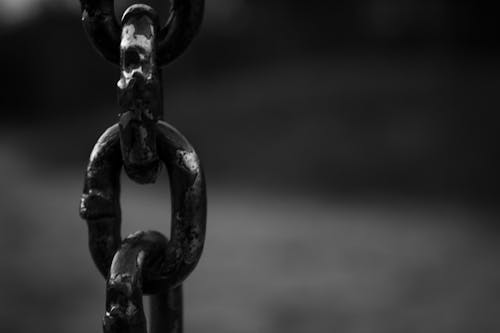
The women's chapters see not just the present suffering but the erasure of the culture of family, of personhood being stripped away. The round-mouthed prose of Jones’ language, spills like poisoned honey across the page; life-giving, body-conjuring. Sexuality and gender are at the fore of this historical, fictitious study and yet it provides no mandate, no guidelines for any of it. To Jones, a simple phrase never just states its meaning. It is loaded with a million pathways for our minds to wander down or shy from, a million connotations and thought processes. And he wants us to wander amidst his words, picking at the barbed cotton until our hands bleed too.
Proud but unsure Samuel, profound but quiet Isaiah, seething, raw and powerful Maggie – these characters don’t leave you once the book is put down. After finishing, I just wanted to be left alone for a day and a night to absorb what had just played out in Jones’ sickening but compulsive narrative. Raw and miserably powerful, this lyrical debut will be making waves for years after its initial publication.
Order a copy here.

